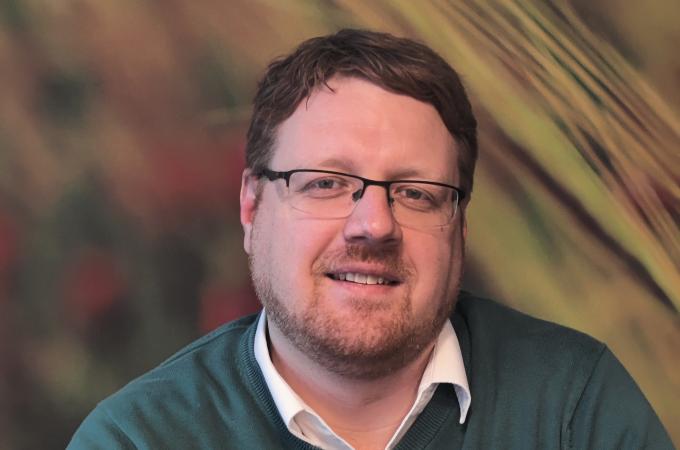#Team Storengy: Simon Grzyk
Today we’re talking to Simon Grzyk. He’s a performance engineer for pore storage at Storengy and has been working at our Berlin site since 2013.

At Storengy Germany, we’re very proud of our employees, because they’re an important part of our success. In our #TeamStorengy series, we introduce colleagues from different areas who enrich our company with their commitment.
Today we’re talking to Simon Grzyk. He’s a performance engineer for pore storage at Storengy and has been working at our Berlin site since 2013.
What are your tasks as a performance engineer for pore storage?
Storengy operates six underground gas storage facilities in Germany, three of which are pore storage facilities. My main task is to ensure the performance of our pore storage facilities, i.e. their efficient operation under the given geological, licensing and technical conditions. In contrast to our two dispatching teams, who work at the operational level and manage the daily gas business, I think in medium- and long-term timeframes.
In concrete terms, this means that I observe and evaluate the performance of the storage facilities based on measured values, sampling, operational test modes and other technical parameters. I optimise the operating level of the reservoirs so that they can also offer good performance in the long term. An optimal balance must be created here, as the reservoirs must also provide a certain performance in the short term without suffering damage in the long term. On the one hand, constant filling and emptying is important in order not to put too much strain on the storage facilities; on the other hand, we want to offer maximum flexibility for our customers who store their gas in our storage facilities. This means that we have to be able to fill or empty the storage facilities at maximum capacity even within a few hours, although the original concepts for these storage facilities are designed for longer periods of time.
Based on these analyses, I develop operational modes and recommendations for action for our dispatching teams so that they can manage the daily gas flows.
What do you enjoy most about your job?
My job primarily requires a lot of logical and analytical thinking, and that’s what I enjoy most about it. Since problems or malfunctions that occur cannot be easily viewed and discussed on site underground, the source of the fault must be found indirectly by means of mathematics, hypotheses and test modes during the ongoing operation using a large amount of measurement data.
For example, the pressure can initially change for no apparent reason. Pressure is an important indicator of the condition of the gas storage facilities. By combining this with other parameters, such as the gas quality, flow rates for water or accumulated sand, we can puzzle things together piece by piece to deduce what might have happened. This is discussed with colleagues on site and in the company, and possible courses of action are explored in detail. This can result in us recommending operational changes for the colleagues in dispatching.
Teamwork is often required here, as I also depend on the help of my colleagues to find solutions. In particular, the wealth of experience and knowledge of the teams on the ground cannot be reproduced with mathematical analyses.
Another thing I really appreciate is the mix of routine and new challenges that the job brings. My daily work routine has a certain basis that is always the same. You regularly look at the same measurement data and, if everything is fine, you can devote yourself to other tasks – but as soon as there are spikes or irregularities in the measured values, you have to react quickly.
Let’s look at your career path. How has your professional career developed so far?
I studied industrial engineering in Clausthal, specialising in petroleum and natural gas technology, and then entered the storage business via an internship with a gas storage operator in Leipzig. I really enjoyed that. After a few years I decided it was time for a career change and worked for two years at a petroleum refinery, where I mainly dealt with the use of natural gas.
Then in 2013 I returned to the storage business, starting at Storengy. I initially worked in commercial dispatching, where I developed and implemented the balancing system for our virtual gas storage products, and devised the optimisation of our products with my colleagues.
In 2016, I was given the opportunity to join the newly created Asset Management division. It was realised that performance engineers were needed on the ground who could look more closely at the behaviour and associated measured values of the storage facilities. Until then, such expertise only existed in the parent company and was managed from Berlin. That’s how my department was founded. My educational background and previous professional experience resulted in many different touching points. Storengy created this new position and gave me the chance to develop professionally.
Visit our careers page to learn more about Storengy as an employer and discover exciting job opportunities.

